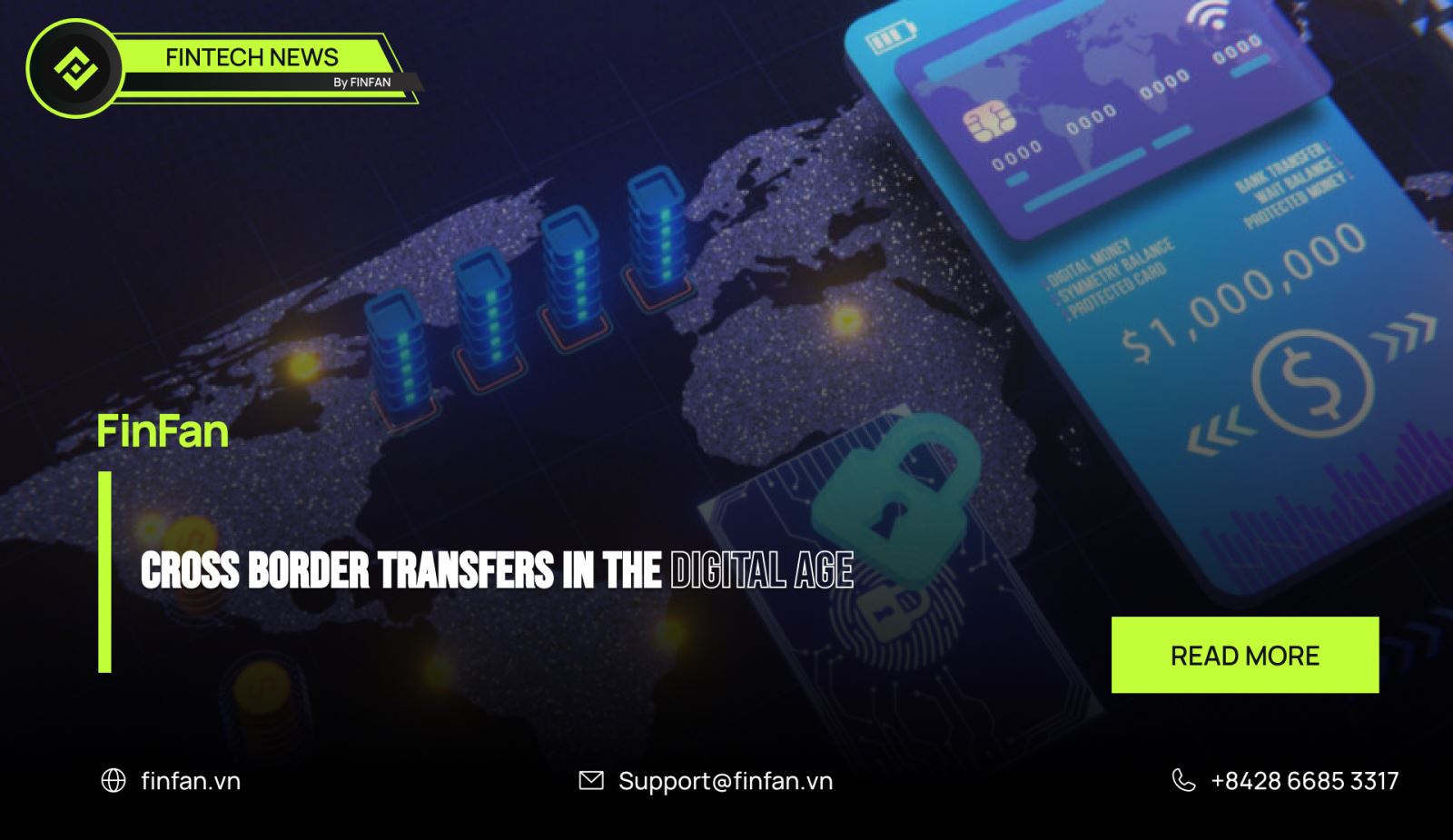Cross border transfers in the digital age

Cross border transfers are always important for the development of the economy of a nation. It helps the commodity trade to go smoothly and money flows back and forth more easily even though it's different from one country to another.
With the development of technology, cross border transfers change rapidly. In this article, let’s find out with FinFan these changing things and whether they are good or not.
The world has been changing since COVID-19 and cross border transfers are not an exception.
COVID-19 happened as a storm sweeping through the peace, it has made everything change from working methods to daily activities.
For the first time ever, people had to work online (work from home) instead of going to the office, something that only a small number of the population could or had had to choose before.
In that period, some new economies appeared and exploded powerfully, especially the gig (sharing economy).
The gig economy is one in which workers earn income by providing work, services, or goods on demand. That opens the chance for many influencers and KOL/KOC when they can have income without any barriers and almost instant money and near real-time payments.
Everyone has changed the demands of payments.
Some industries that were very developed at the time of COVID are expected to have even stronger growth in the near future such as food delivery, grab, freelancers, etc. The peculiarity of these jobs is that they are paid immediately after completing the work.
At the same time, the total volume of the global gig economy is projected to grow at a Compound Annual Growth Rate (CAGR) of 16.18% from the beginning of 2022 to 2027.
"People need to get paid and get paid. But one of the main difficulties is how to pay and receive money accurately, quickly and securely, even the smallest amount.
In this age, even the smallest individual payments happen regularly, not just once a month or once a quarter. So, everyone needs to be paid quickly and securely, from a reliable unit" emphasized Mr. Deepan Dagur - Director of Visa Direct, Asia - Pacific.
How can people make cross border transfers quickly?
Because of more demands for quick cross border money transfers, many solutions to the above problem were formed and developed stronger.
People can now less than 5 minutes was able to transfer money from abroad to Vietnam (even going directly to their ewallets) like the service cooperating between FinFan and Remitly.
With this service, people now need only 3 steps to complete their remittances to Vietnam through the ewallet aggregator of FinFan.
Does blockchain make cross border transfers faster?
*Blockchain technology promises to facilitate fast, secure, low-cost international payment processing services (and other transactions) through the use of encrypted distributed ledgers that provide trusted real-time verification of transactions without the need for intermediaries such as correspondent banks and clearing houses.
Blockchain technology was initially used to support the digital currency Bitcoin, but is now being explored for a wide variety of applications that don’t involve bitcoin.
There are two main areas of blockchain activity that may see live deployments in 2017 and may have implications for businesses: international payment processing services involving bank-to-bank transfers and trade finance applications (including the use of “smart contracts”).
These areas are ripe for disruption because existing systems are often old, slow and costly, according to a report by Credit Suisse, which notes that today’s cross-border wire payments can take days to clear and involve fees as high as 10 percent.
Some blockchain-based B2B payment processing services already exist; others are expected to launch in 2017 and later. Perhaps the biggest emerging trend is the use of distributed-ledger technologies unrelated to Bitcoin, such as Ripple (a partner of FinFan) and Ethereum.
In Japan, a consortium of banks plans to go live in the Spring of 2017 with a blockchain-based payment processing service that will support real-time domestic and cross-border payments at lower cost versus traditional services.
Several existing blockchain-based payment processing services are based on Bitcoin. Some of these are designed for the relatively small subset of businesses trading directly in Bitcoin. But other payment processing solutions address a much larger audience by using the Bitcoin distributed ledger to transfer payments in conventional currencies.
This enables them to bypass existing banking infrastructure, with the goal of accelerating payment and reducing cost. The provider converts the payer’s local currency into Bitcoin, then converts the Bitcoin into the receiver’s local currency, often delivering international payments within one to three days. In Kenya, BitPesa is using this method to enable companies to make faster, cheaper payments between African countries without having to rely on slow and inefficient local banking infrastructure, according to a Citi Research report.*